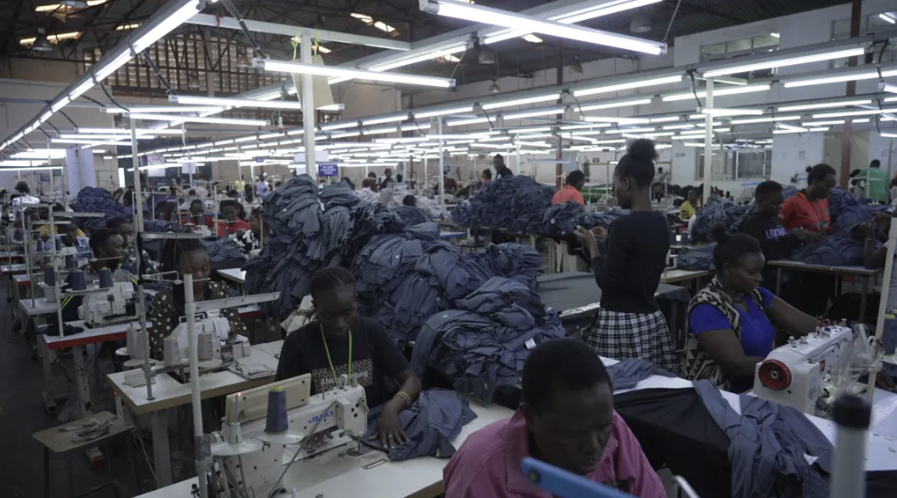At Shona EPZ, a garment factory in Nairobi, the sound of sewing machines normally signals productivity and hope. Today, however, that rhythm carries a heavy uncertainty. The African Growth and Opportunity Act (AGOA), which for 25 years has given African goods duty-free access to the US market, is set to expire on Tuesday. Its lapse could threaten thousands of jobs across the continent.
AGOA was designed to replace aid with trade, creating employment and helping African economies industrialize. In Kenya, the agreement has been particularly valuable. In 2024 alone, Kenya exported $470 million worth of clothing to the US, supporting more than 66,000 direct jobs, three-quarters of them held by women, according to the Kenya Private Sector Alliance.
For workers like 29-year-old Joan Wambui, the uncertainty is devastating. She has only worked at Shona EPZ for six months, but her salary supports her daughter, two sisters in college, and her mother. “If AGOA expires, where shall we go?” she asks. “In Kenya, it’s very hard to find a job.”
Shona EPZ, which employs 700 people, has already felt the pinch. Output has fallen by two-thirds this year as buyers hesitate to make long-term orders. Factory director Isaac Maluki warns that without an extension, layoffs or even closure are possible. “We’ve invested $10 million in this company,” he says. “If the extension doesn’t happen, that could all go down the drain.”
The uncertainty extends far beyond Kenya. More than 30 African countries export over 6,000 products under AGOA, ranging from textiles to agricultural goods. Experts warn that African nations must redefine their negotiating strategies. Trade policy expert Teniola Tayo notes, “African countries need to figure out what they want from the US and what they can offer in exchange for market access.”
As African leaders intensify lobbying in Washington, the fate of workers like Wambui hangs in the balance. The expiry of AGOA would not just end a trade agreement it could unravel livelihoods.

